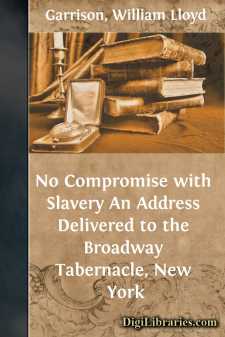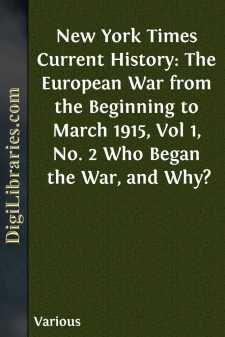History
- Africa 30
- Americas (North Central South West Indies) 50
- Ancient 68
- Asia 58
- Australia & New Zealand 8
- Canada 41
- Caribbean & West Indies 1
- Civilization 20
- Eastern Europe 12
- Europe 310
- Expeditions & Discoveries 60
- General 77
- Historical Geography 1
- Jewish 9
- Latin America 3
- Medieval 8
- Middle East 13
- Military 248
- Revolutionary 8
- Study & Teaching 5
- United States 353
- Western Europe 56
- World 13
History Books
Sort by:
by:
A. Stanley Blicq
Fed up! Every man of the Ten Hundred was fed up. Thirty-six hours cooped in cattle trucks, thirty or forty in a truck and inhaling an atmosphere that would have disgusted a pig—enough to feed anyone up. The Belgian frontier was crossed at sunset and the fringe of war's devastation penetrated. Little interest or casual comment was aroused, although a reputable thirsty one remarked that he thought...
more...
ADDRESS. Ladies and Gentlemen: An earnest espousal of the Anti-Slavery cause for a quarter of a century, under circumstances which have served in a special manner to identify my name and labours with it, will shield me from the charge of egotism, in assuming to be its exponent—at least for myself—on this occasion. All that I can compress within the limits of a single lecture, by way of its...
more...
by:
John Gierlow
INTRODUCTION. Lewis Holberg, the author of the Narrative of Niels Klim, was the most eminent writer among the Danes in the eighteenth century. His works show a surprising versatility of genius, comprising Histories and Treatises on Jurisprudence, together with Satires and Comedies. He was by birth a Norwegian, but was educated at the University at Copenhagen in Denmark. Soon after receiving a...
more...
by:
John Fretwell
"To be taken into the American Union is to be adopted into a partnership. To belong as a Crown Colony to the British Empire, as things stand, is no partnership at all. "It is to belong to a power which sacrifices, as it has always sacrificed, the interest of its dependencies to its own. The blood runs freely through every vein and artery of the American body corporate. Every single citizen...
more...
by:
Various
"Common Sense About the War" By George Bernard Shaw. "Let a European war break out—the war, perhaps, between the Triple Alliance and the Triple Entente, which so many journalists and politicians in England and Germany contemplate with criminal levity. If the combatants prove to be equally balanced, it may, after the first battles, smoulder on for thirty years. What will be the population...
more...
by:
Various
WHO BEGAN THE WAR, AND WHY? THE CASE FOR GERMANY SPEECHES BY KAISER WILHELM II. From the Balcony of the Palace, Berlin, July 31, 1914. A fateful hour has fallen for Germany. Envious peoples everywhere are compelling us to our just defense. The sword is being forced into our hand. I hope that if my efforts at the last hour do not succeed in bringing our opponents to see eye to eye with us and in...
more...
by:
John L. Cotter
Part One Exploration: The Ground Yields Many ThingsByJohn L. CotterSupervising Archeologist, Colonial National Historical Park“As in the arts and sciences the first invention is of more consequence than all the improvements afterward, so in kingdoms, the first foundation, or plantation, is of more noble dignity and merit than all that followeth.”—Lord BaconIn the summer of 1934 a group of...
more...
CHAPTER I. THE NEUTRALITY OF THE UNITED STATES. The neutral attitude assumed by the United States was maintained throughout the war. With reference to any official recognition of the Transvaal as an independent State apart from the immediate purposes of war no action was taken. This view of the situation in South Africa was entirely consistent with the requirements of international law, and, in...
more...
by:
Jacob Abbott
Chapter I. A.D. 37Roman country seats.In ancient times, when the city of Rome was at the height of its power and splendor, it was the custom, as it is in fact now with the inhabitants of wealthy capitals, for the principal families to possess, in addition to their city residences, rural villas for summer retreats, which they built in picturesque situations, at a little distance from the city, sometimes...
more...
CHAPTER I Within the brief period of three years following the outbreak of the great war in Europe, more than four hundred thousand negroes suddenly moved north. In extent this movement is without parallel in American history, for it swept on thousands of the blacks from remote regions of the South, depopulated entire communities, drew upon the negro inhabitants of practically every city of the South,...
more...











